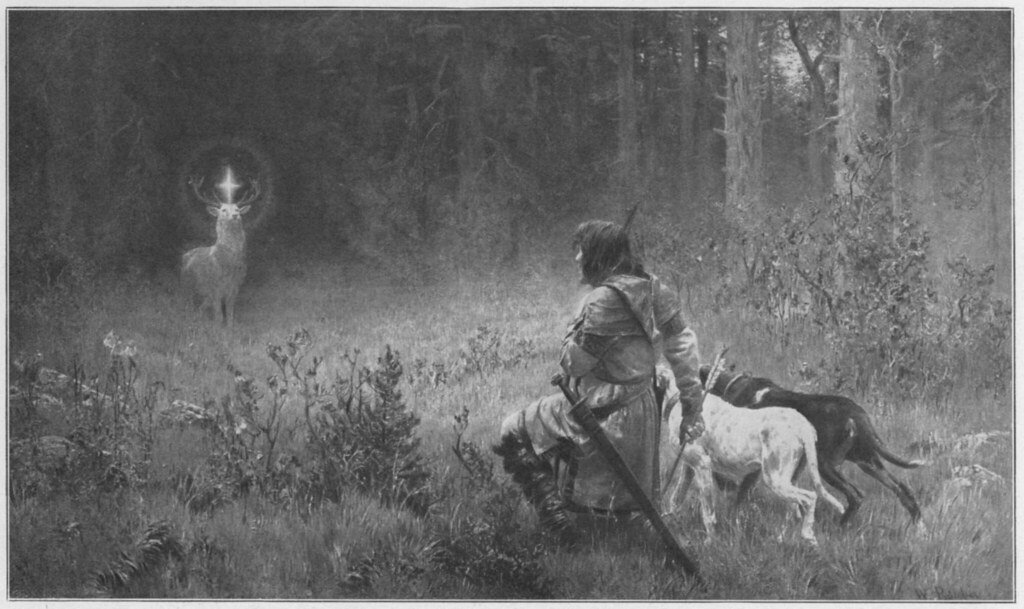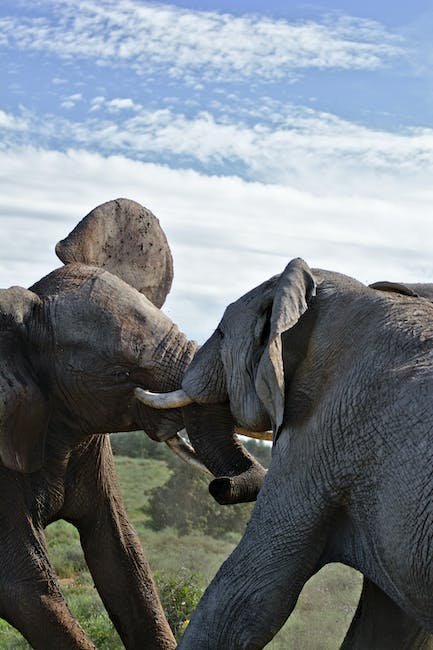Now Reading: The Importance of Ethical Hunting Practices
-
01
The Importance of Ethical Hunting Practices

The Importance of Ethical Hunting Practices
In the stillness of the early dawn, a hunter moves through the dense undergrowth, each step calculated and deliberate. Their heartbeat aligns with the rhythm of nature, a primal connection that has been forged through countless generations. But beyond the thrill of the chase and the harvest that awaits, there lies a profound responsibility – a commitment to ethical hunting practices. Far beyond a mere sport or survival skill, ethical hunting transcends the simple act of taking down prey. It encompasses a philosophy rooted in respect for wildlife, conservation, and the harmony between humans and the natural world. As we delve into the depths of this significant topic, let us explore why ethical hunting practices are not only essential but serve as a compass to guide our relationship with nature itself.
Table of Contents
- Understanding the Principles of Ethical Hunting
- Ensuring a Humane Harvest: Proper Shot Placement and Firearms Handling
- Preserving Wildlife Habitats: Conservation Practices for Ethical Hunters
- Promoting Fair Chase: The Ethics of Pursuit and Use of Technology
- Respecting Wildlife: Ethical Practices in Field Dressing and Trophy Preparation
- Q&A
- In Summary

Understanding the Principles of Ethical Hunting
Hunting is a cherished activity that holds both historical and cultural significance. It is vital, however, to recognize the principles of ethical hunting to ensure sustainability and respect for the natural world. By adhering to these principles, hunters can demonstrate their commitment to conservation and responsible hunting practices.
When it comes to ethical hunting, there are several key principles to bear in mind:
- Fair Chase: Ethical hunters believe in providing animals with a fair chance at survival. This means avoiding unfair advantages by adhering to hunting regulations, using legal methods, and employing fair hunt tactics. It ensures that the hunted animal has a fighting chance and promotes a sense of fairness in the pursuit.
- Respecting Wildlife: Ethical hunters understand the importance of respecting all living creatures. They treat wildlife with dignity and aim to minimize any unnecessary suffering. This involves making humane shots, respecting bag limits, and hunting for sustenance rather than sport.
- Conservation Stewardship: Ethical hunters actively contribute to the conservation and preservation of habitats and wildlife populations. They recognize the delicate balance of ecosystems and work towards sustainable practices. This may involve participating in wildlife management programs, supporting conservation organizations, or engaging in habitat restoration efforts.
By embracing these principles, hunters can engage in a meaningful and responsible pursuit that not only respects the natural world but also contributes to the ongoing preservation of wildlife habitats and populations.

Ensuring a Humane Harvest: Proper Shot Placement and Firearms Handling
When it comes to hunting, it is of utmost importance to prioritize humane practices. Achieving a quick and clean harvest not only ensures the welfare of the animal but also demonstrates respect for nature and the sport itself. To achieve this, mastering shot placement and proper firearms handling are essential skills that every responsible hunter should acquire.
Shot placement is the key to an ethical harvest. By aiming for vital organs, such as the heart or lungs, hunters can ensure a swift and humane kill. This requires careful knowledge of animal anatomy and an understanding of their behavior in different hunting scenarios. Remember, responsible hunting is not about taking a shot unless you are confident it will cause a quick and painless death.
Alongside shot placement, firearms handling plays a crucial role in ensuring both safety and humane hunting. It is crucial to practice proper gun safety measures at all times, including treating every firearm as if it were loaded, keeping your finger off the trigger until ready to shoot, and maintaining a safe distance from other hunters. Familiarize yourself with the specific firearms you use and regularly practice shooting to maintain accuracy.
By prioritizing proper shot placement and firearms handling, hunters can ensure a humane harvest that minimizes suffering and respects the natural cycle of life and death. Remember, ethical hunting not only preserves the balance of ecosystems but also helps maintain the long-standing tradition of responsible hunting.

Preserving Wildlife Habitats: Conservation Practices for Ethical Hunters
As ethical hunters, it is our responsibility to not only enjoy the thrill of the chase but also to ensure the preservation of wildlife habitats. By practicing conservation techniques, we can contribute to the protection and sustainability of our natural ecosystems. Here are some important practices every ethical hunter should adopt:
1. Respect Wildlife and their Habitats
Respecting wildlife and their habitats should be the foundation of every hunting adventure. Take the time to understand the animals you pursue, their behaviors, and the ecosystems they inhabit. By respecting their natural rhythms and habitat boundaries, you can minimize your impact on their daily lives.
2. Promote Biodiversity
A crucial aspect of preserving wildlife habitats is promoting biodiversity. Encourage the growth and diversity of plant species that provide shelter and food sources for wildlife. Support conservation organizations that work to protect and restore ecosystems, ensuring a balanced and thriving environment for all species.
3. Practice Sustainable Hunting
Sustainable hunting is key to maintaining healthy populations and habitat balance. Always abide by hunting regulations and seasons set by wildlife management authorities. Adopt “fair chase” principles, which emphasize the pursuit and harvest of game animals in a manner that ensures a sporting and ethical hunt.
4. Leave No Trace
When venturing into the wilderness, remember the importance of leaving no trace. Pack out everything you bring with you and dispose of waste responsibly. Avoid altering the natural landscape and be mindful of the impact your presence can have on the environment and its inhabitants.
By implementing these conservation practices, ethical hunters play a vital role in preserving wildlife habitats for future generations. Together, we can enjoy the thrill of the chase while ensuring the long-term sustainability of our natural world.
Promoting Fair Chase: The Ethics of Pursuit and Use of Technology
When it comes to the world of hunting and outdoor pursuits, the concept of fair chase is of utmost importance. Fair chase embodies the ethical standard that governs our actions, ensuring that the pursuit and harvest of game animals are conducted in a manner that is both respectful and sustainable. One key aspect of fair chase is the use of technology.
Technology as a Tool:
- Modern advancements in hunting equipment and technology have undoubtedly revolutionized the way we engage with nature.
- While these tools can enhance our hunting experience, it is crucial to consider the overall impact they may have on fair chase.
- From trail cameras to high-powered firearms, it is essential to strike a delicate balance between utilizing technology responsibly and preserving the inherent challenge and excitement of the hunt.
The judicious use of technology can enable hunters to gather information and plan their pursuits effectively. However, relying too heavily on these advancements can potentially diminish the spirit of fair chase and compromise the ethical principles we hold dear.
The Ethics of Pursuit:
- At its core, the pursuit of game animals should be seen as a test of our skills, knowledge, and patience.
- It is important to remember that fair chase is not solely about the act of harvesting an animal, but rather the entire process leading up to that moment.
- Hunters must respect the natural habitats and behaviors of game animals, seeking to understand and adapt to the elements of their environment.
By embracing fair chase ethics and recognizing that hunting is about more than just a successful outcome, we can foster a deeper connection to nature and ensure the preservation of our hunting traditions for generations to come.
Respecting Wildlife: Ethical Practices in Field Dressing and Trophy Preparation
When it comes to hunting and preserving wildlife, it is crucial to approach field dressing and trophy preparation with utmost care and respect. By following ethical practices, we can ensure the preservation of animal species and their habitats, as well as maintain the balance of ecosystems. Here are some guidelines to uphold ethical standards:
- Minimize Waste: Waste reduction is essential in ethical field dressing. Use as much of the animal as possible, such as the meat, hide, and bones. Donate any excess meat to shelters or organizations that can utilize it.
- Treat Animals with Respect: Handle animals with care and consideration during the field dressing process. This includes using proper tools and techniques to minimize pain and stress. Remember, humane treatment is paramount to maintaining ethical practices.
- Employ Sustainable Techniques: Protect wildlife populations by utilizing sustainable hunting techniques. Avoid excessive hunting in one area and adhere to hunting quotas and regulations established by local authorities. This helps prevent overhunting and promotes ecosystem preservation.
- Proper Trophy Display: If you choose to display trophies, ensure they are ethically sourced. Display them with dignity and in a manner that respects the animal’s life. Consider using alternatives to traditional mounts, such as artistic renderings or photographs.
By practicing ethical field dressing and trophy preparation techniques, we demonstrate our commitment to preserving wildlife for future generations. Responsible hunting not only supports conservation efforts but also fosters a deep appreciation for the natural world.
Q&A
Why is ethical hunting important?
Ethical hunting is crucial to ensure the preservation of wildlife and the ecosystems they inhabit. It promotes sustainable hunting practices, minimizes animal suffering, and maintains a balanced ecosystem.
What does ethical hunting entail?
Ethical hunting involves respecting the laws and regulations in place, exercising fair chase principles, and pursuing only species within legal limits. It also means using hunting methods that prioritize the quickest and most humane kill, minimizing unnecessary suffering.
How does ethical hunting contribute to conservation efforts?
Ethical hunting provides funding for conservation initiatives through license fees, permits, and taxes on hunting equipment. It helps control animal populations that may otherwise exceed the carrying capacity of their habitat, ensuring healthier ecosystems for all wildlife.
What can hunters do to ensure ethical practices?
Hunters should continually educate themselves on wildlife management, hunting regulations, and best practices. They should also respect private property, obtain permission to hunt on designated lands, and consistently practice firearm safety.
What ethical considerations should be taken before taking a shot?
Hunters need to consider factors such as the animal’s age, gender (if applicable), and species population dynamics. It is vital to ensure that the shot is taken within a responsible range and with enough proficiency to bring a swift, humane kill.
Are there any additional responsibilities for hunters post-shot?
Yes, ethical hunters are responsible for tracking wounded animals diligently to minimize suffering. They should also promptly field dress and utilize all harvested game, ensuring that no part goes to waste.
What is the impact of unethical hunting practices?
Unethical hunting practices, such as poaching or hunting without regard for regulations, have devastating consequences. They can lead to the decline of animal populations, habitat destruction, disrupted ecosystems, and loss of revenue for conservation initiatives.
How can ethical hunting be promoted?
Promoting ethical hunting can be achieved through education and awareness campaigns that emphasize the importance of conservation, ethical conduct, and sustainable hunting practices. Encouraging a strong hunting community founded on respect for wildlife and nature is also crucial.
In Summary
As the sun begins to set on the sprawled landscape, casting a warm golden hue across the horizon, our journey through the realm of ethical hunting practices comes to an end. We have traversed the intricate paths that intersect morality and nature, gaining a deeper understanding of the significance of ethical hunting. With steady steps and unyielding conviction, we have embraced the essence of this ancient tradition, paving the way for a harmonious coexistence between humans and wildlife.
In this vast tapestry of life, ethical hunting holds a pivotal role, embodying a delicate balance between conservation and sustenance. Honoring the natural order, we have explored the underlying essence of this noble pursuit, recognizing the profound responsibility that lies within hunter’s hands. It is through unwavering ethics that we preserve the sanctity of the wild and truly connect with the essence of nature.
Through the lens of respect, integrity, and compassion, ethical hunters seek to foster a mutual understanding with the creatures that roam our lands. The act of taking life becomes an act of reverence, acknowledging the interconnectedness between predator and prey. In this light, hunting transcends the mere collection of trophies or vanquishing of opponents, becoming a profound communion with our ancestral roots and a testament to our place in the grand tapestry of existence.
Yet, it is in the pursuit of ethical hunting that we expose the flaws in our own nature, humbling ourselves before the majesty of the wild. For the true hunter understands that harmony can only be achieved when we become guardians of the natural world, stewards of biodiversity. It is this guardianship that allows us to partake in the ancient dance of life, preserving and nurturing the very tapestry that sustains us.
As we bid farewell to this enlightening exploration, remember that ethical hunting is not just an endeavor; it is a way of life. It calls upon us to be practitioners of compassion, defenders of wilderness, and catalysts for change. It urges us to bridge the divide between man and beast, embracing our shared existence in this vast and awe-inspiring world.
So, let us stride forward, forever mindful of the lessons learned, forever dedicated to preserving the sanctity of ethical hunting practices. May we forever be the bearers of this timeless wisdom, ensuring the enduring legacy of our coexistence with the wild. For in the realms of ethical hunting, we discover our own true humanity, intertwined with the very heartbeat of nature.
As an affiliate, my content may feature links to products I personally use and recommend. By taking action, like subscribing or making a purchase, you’ll be supporting my work and fueling my taco cravings at the same time. Win-win, right?
Want to read more? Check out our Affiliate Disclosure page.


